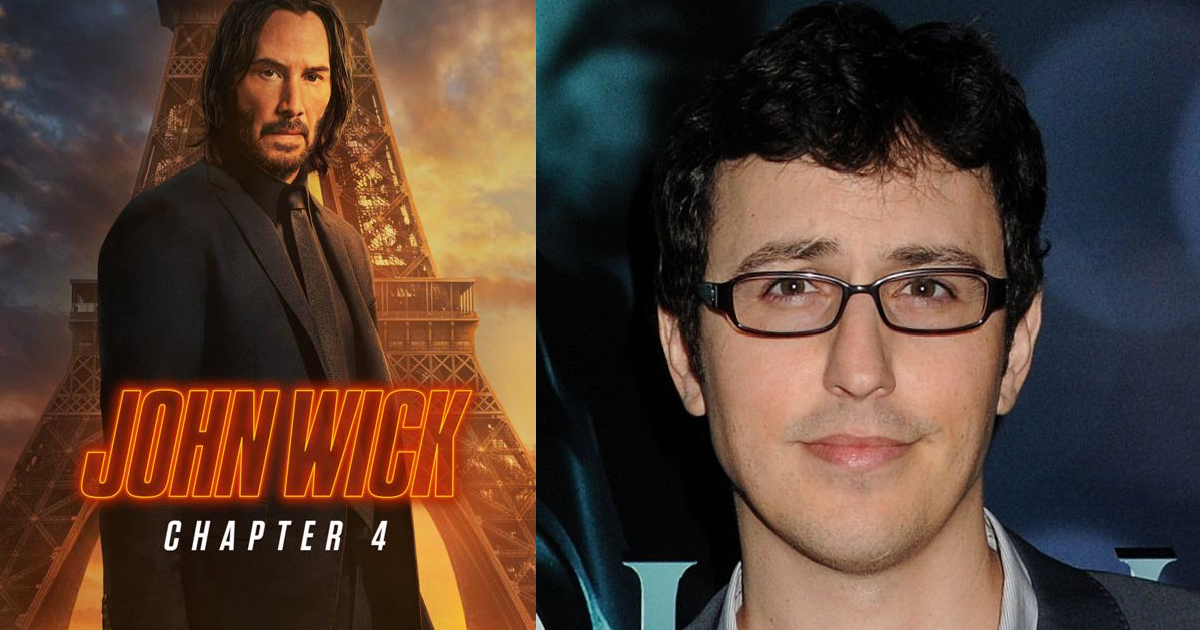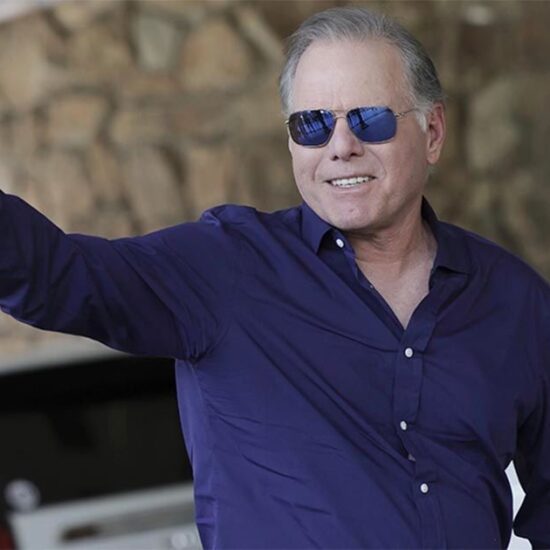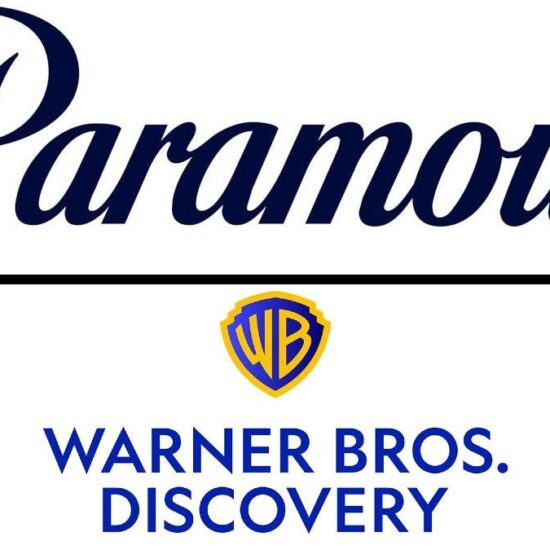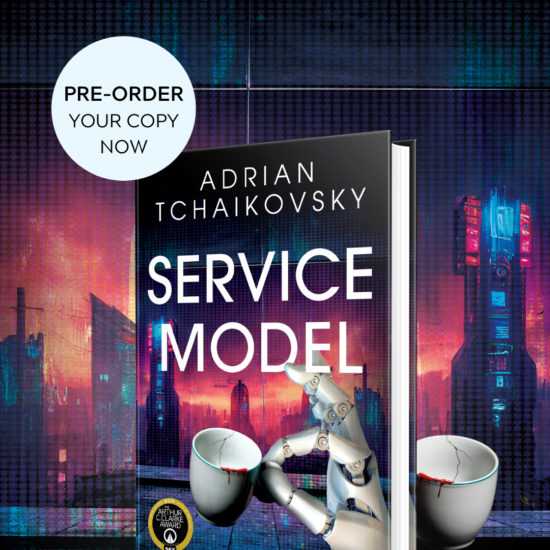
ComingSoon spoke with John Wick: Chapter 4 composer Joel J. Richard about his work on the fantastic movie. Richard worked on all three prior films of the franchise alongside Tyler Bates as well as films such as Triple Threat and Books of Blood.
ComingSoon: You’ve been involved with the John Wick franchise since the beginning. What drew you to the first film, and where did John Wick’s sound originate from?
Joel J. Richard: We attended a Family and Friends screening of the film, where I was able to see it for the first time. I was blown away (pun intended) by the initial viewing and immediately started creating demo ideas and concepts based on my initial impression. Part of the sonic palette came from thinking about what the character, John Wick, might listen to…the shoegaze and blues genres came to mind, it came from connecting to the picture and tapping into the emotion and pathos of John. The gritty and industrial textures support John as a character, as well as the brutality of the underworld John is looking to escape. At the same time, Chad and Dave emphasized wanting the film to be fun, and not take itself too seriously, which enabled the score to have a badass cinematic energy with hybrid electronic, orchestral, and rock & roll influences.
How has the music, or your approach to the music, evolved over the films?
Visually, the use of cinematography in JW1 is much tighter and places the audience closer to the action, which is also reflected in the musical approach to the score, which has a much tighter and dirtier sound when compared to the following chapters. As the JW universe has expanded, so has the musical palette and language for the films.
The score for JW4 leans more heavily on the orchestra than the previous films, while still incorporating the more aggressive, heavily processed instrumentation that defines the sound of the prior installments of the JW series.
John Wick 4 is epic in scale — there are grand fight sequences, and the film takes us to various locales. What was your goal with the music — and how do the new batch of characters — like Caine and Akira, for example — and new locations affect your compositions?
Overall, The JW4 score incorporates a richer harmonic vocabulary, and pays homage to classic Spaghetti Westerns and classic Japanese cinema, while maintaining the essence of the John Wick sound. Some new additions to the palette are the use of the Alto flute, brass, baritone guitar, harmonica, ocarina, taiko, and choir. New characters like Caine, Akira, Shimazu, and the Marquis provided a lot of inspiration. Caine has his own alto flute motif, and Akira and Shimazu share a variation of the John Wick theme on strings. The Marquis has a defined orchestral march and incorporates Tuvan and female vocals.
There are a number of remarkable needle drops in the film — my favorite is “Hate or Glory” — how do you determine which set pieces require musical score and which require songs? And what about the songs in the film drew you to use them specifically?
Song vs. score placement was ultimately determined by Chad. The songs that were incorporated into the film were chosen by Chad and music supervisor Jen Malone. Tyler worked with a variety of artists to produce bespoke covers of “Nowhere to Run” and “Paint it Black,” as well as an original song with Rina Sawayama (“Eye For An Eye”). Le Castle Vania was also brought back to write new music for the Berlin club sequence.
There’s also a decidedly somber tone throughout John Wick 4 — at one point, John talks to Caine about his wife in a cathedral — was there a conscious approach to foreshadowing John’s death with the music?
A somber tone has been a constant throughout the franchise. John is in a state of perpetual mourning; the mourning of the loss of his wife Helen and the only happiness he has truly experienced in his life. A female voice has been incorporated since JW1 and represents Helen calling to John. As JW4 progresses, Helen’s voice gets louder and eventually becomes supported by a full choir. Caine and John are both motivated by love and loss- John the loss of his wife, and Caine the forced separation from his Daughter Mia by the Marquis. For the church scene with Caine and John, musically it was instinctive to connect the characters with that element of their stories –their loss, their pain, their sacrifice.
What was the most difficult sequence to score as the John Wick: Chapter 4 composer?
The biggest challenge with JW4 was finding the right balance between the gritty musical palette the franchise has become known for and the more overt spaghetti Western influence for the final duel. Chad was very hands-on throughout the process, and it was a collaborative give-and-take. The musical approach for the duel evolved up until the final day of the mix.
Is there a musical moment you want audiences to pay attention to?
That’s always an interesting question for me as a composer. On one hand, your job is to support and enhance story, character, and picture without drawing too much attention to the music…and then there are moments where the music becomes its own character and exists at the forefront. One of my favorite pieces, “Helen in A Handbasket,” is from the final scene in the film where the music dances with both of those purposes. The music serves as the voice for his internal experience with a sparse stillness that draws the audience in– emotionally connecting us to John and his story. There is power and weight in that stillness.
With so much talk about potential sequels and/or spinoffs, are there musical cues you’d love to explore in other films? Or cues that you set up specifically to reexplore later on down the road?
Ultimately, the picture dictates what it wants musically. Each new film brings its own set of needs and challenges. The main goal is to create music that best serves the film, with that in mind, I try to start new projects without any preconceived ideas. I walk in, open to collaboration with the director, and draw inspiration from the script and picture.
How much fun is it to score a film like John Wick?
I love how dynamic the films are. They cover the full spectrum of emotions, especially JW4.
It incorporates humor, yearning, a sense of loss, tension, drama, and loads of action- sometimes all within one scene. Supporting that musically keeps you on your toes.
What’s next on your agenda?
Honestly, a vacation!
ComingSoon thanks to John Wick: Chapter 4 composer Joel J. Richard for taking the time for our interview.













